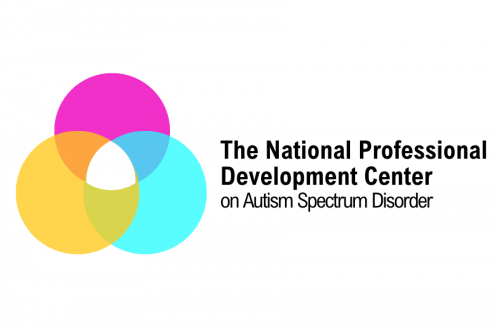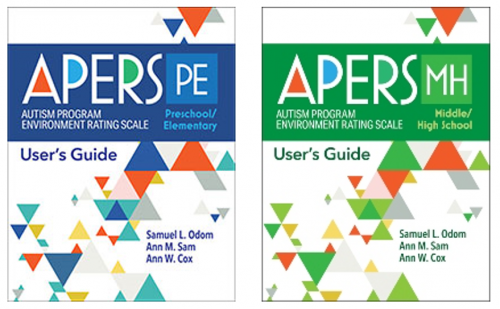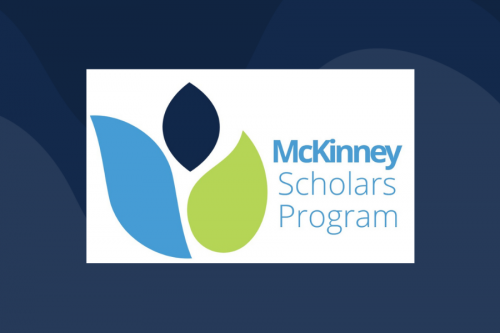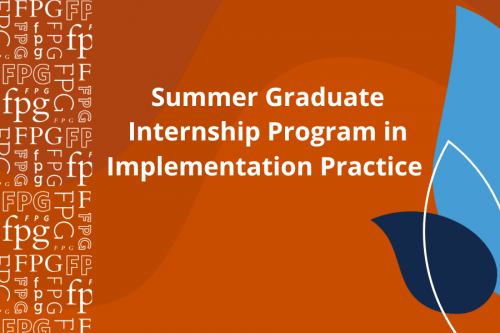
In this one-day virtual workshop, participants engage in a process of selecting, planning for and implementing evidence-based practices for students with autism. Content is based on the research-supported framework developed by the National Professional Development Center on Autism (NPDC), which promotes quality programming and the use of evidence-based practices for students with autism.
The strategies and practices shared can be used by your team to address key areas of need for students with autism. Participants will develop a team-based classroom plan for selecting and using these strategies immediately in their classrooms. At the completion of the training, participants will receive 0.8 hours of CEUs.
To learn more and register, visit the NPDC training page.

This virtual, interactive training provides certification from the National Professional Development Center on Autism (NPDC) to administer the Autism Program Environment Rating Scale (APERS) for preschool, elementary, middle, and high school settings. The APERS is a reliable tool focused on the specific learning needs of autistic students. Learn how to use observations, interviews, and reviews of records to administer the APERS. Information gathered will be used to rate 10 key domains that support overall program quality for students with autism. Results can be used to identify strengths and specific areas of growth for programs. The APERS can be administered in both separate and inclusive settings.
The training includes didactic instruction on how to administer the APERS and video case examples to practice scoring the APERS. Participants will then complete a practice APERS on their own in a setting of their choosing. An NPDC-APERS trainer will meet with participants in small groups to review scoring of practice APERS. The final training session will include all participants and will address topics of writing reports, identifying professional development opportunities, and developing plans to increase program quality. Finally, participants will draft a report of their practice APERS for an NPDC-APERS trainer to review and provide feedback. At the completion of the training, participants will be NPDC certified APERS administrators and receive 2.6 hours of CEUs.
We encourage participants from the same district/school/team to sign up to complete the APERS training together.
To learn more and register, visit the APERS training page.

Be CALM Mindfulness Course for Educators
Date/time: 01/26/2026 - 02/05/2026
Training cost $250.00
The Be CALM Hybrid Course for Educators is a self-paced introduction to mindfulness in the context of the K-12 classroom. This course is designed to help participants begin or enhance a personal mindfulness practice and consider ways to integrate mindfulness into their work as educators. The course includes readings from the book Mindfulness in the Secondary Classroom by Patricia C. Broderick (provided after registration and payment) as well as opportunities for practice and reflection.
The course is self-paced over six weeks and there are Live Zoom Community of Practice events each Tuesday (3:30pm) and Thursday ( 8:30am) throughout the course.
Register for the Be CALM mindfulness course for educators here.
Be CALM Counseling Training
Date/Time 02/10/2026, 02/18/2026, and 02/26/2026 8:30am - 12:30pm
Training cost $1,285.00
The Be CALM Counseling Training is a live digital training for school mental health staff including counselors and social workers, among others, who are interested in implementing our six-session small group mindfulness-based curriculum for middle and high school students. This evidence-informed group is designed to help students reduce stress & improve emotion regulation through mindfulness-based skills and practices. The training includes three half-day sessions over three consecutive weeks. Participants are also required to complete the concurrent Be CALM Hybrid Mindfulness Course (requires separate registration).
Please be sure you are able to attend all three live sessions and complete assignments for the Hybrid course before registering – they will not be recorded.
In addition to the completing all training, certification requires attendance at two individual coaching sessions in the first semester you implement the group. Costs are included for this coaching as well as quarterly professional learning community meetings on Zoom to support ongoing delivery. Participants will receive the program manual and all supplies needed to deliver the program to one group of six students.
Register for Be CALM counseling training here.
If you have any questions please contact: Desiree Murray desireew@email.unc.edu

The McKinney Scholars Program is designed to create and support a pipeline for individuals who attend historically Black colleges and universities (HBCUs) and are interested in pursuing careers in child development. It is open to all sophomores and juniors, regardless of race or gender, who are enrolled full-time in an undergraduate degree program at a North Carolina HBCU.
This paid summer internship program provides students with the opportunity to participate in meaningful, project-based work in pursuit of their professional interests and in preparation for their careers. McKinney Scholars gain familiarity with how FPG contributes to positive outcomes for young children and their families through research and evaluation, implementation, technical assistance, and policy engagement. In particular, they further their understanding of the importance of research, practice, and policy, as well as the interconnections and pathways between each of these areas of work.

The FPG Implementation summer internship program is designed to create a challenging and meaningful professional experience for the trainee(s) that includes mentoring, networking, professional development, and experiential learning opportunities. Interns benefit from exposure to implementation practice and research across diverse fields and in varied practice settings. This experience provides knowledge and skill development that should enhance and inform the intern's future academic and professional pursuits.
Using implementation science and best practices, our implementation work is active and applied and facilitates improved outcomes for evidence-based practices. Our work is informed by research from the field of implementation as well as related fields, and projects use data to inform continuous improvement practices. FPG is home to three implementation-related workgroups—The Impact Center, National Implementation Research Network (NIRN), and Trohanis Technical Assistance Projects.
To learn more, visit the Implementation summer internship program page
